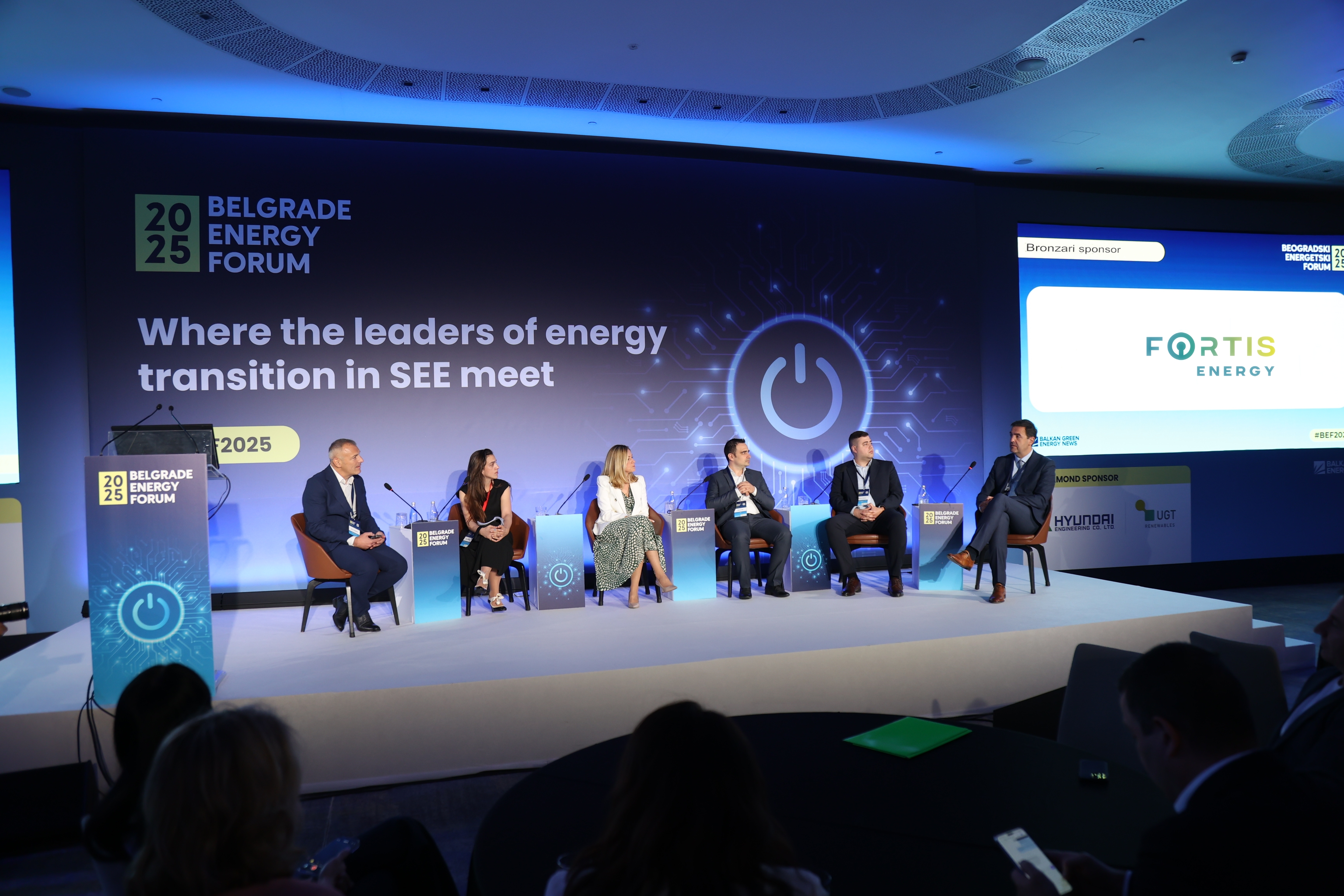
Belgrade Energy Forum 2025, held under the auspices of the Republic of Serbia’s Ministry of Mining and Energy and organized by Balkan Green Energy News, gathered over 400 participants from more than 30 countries. Fortis Energy was among the event’s sponsors, underlining its growing presence and commitment to the region’s green transition. The event featured eight high-level panels and over 50 speakers, including policymakers, executives and leading energy experts.
The absence of clear regulations and an established market framework remains a notable challenge for the rollout of large-scale battery energy storage systems (BESS) in Southeast Europe, observed Nikola Oklobdžija, CEO for Eastern Europe at Fortis Energy, during the Belgrade Energy Forum 2025. Speaking at the session “The Energy Storage Systems Market in Southeast Europe: Trends and Forecasts” Oklobdžija pointed out that while investor interest is steadily growing, further clarity around regulation and revenue mechanisms would help accelerate development efforts across the region.
Unlike traditional generation, storage assets struggle to secure financing without defined income streams. Currently, battery systems in the region are largely justified only as add-ons to renewable plants, not as standalone assets.
Fortis Energy is currently developing a solar-plus-storage project in North Macedonia at its Oslomej solar power plant (80 MWp). The associated battery storage system—already contracted—will include 62 MW of installed power and 104 MWh of capacity. Oklobdžija noted that, given the current market conditions, this hybrid modes remain the most viable option for securing investment.
In Serbia, recent legal changes are mandating battery storage as part of new solar projects—a move that Fortis Energy is already integrating into its upcoming NOCAJ 1 and NOCAJ 2 solar power plants in Sremska Mitrovica, now nearing ready-to-build status.
Oklobdžija highlighted that Europe still lacks extensive experience with large-scale battery energy storage systems, with most practical know-how coming from countries like Australia, North America, South Korea and China. Although countries like Greece and Bulgaria are making progress, standalone battery projects in Southeast Europe remain at an early stage.
“We don’t see batteries as optional—they are a necessity for the future of energy in this region,” Oklobdžija concluded.
As the region eyes decarbonization, investment in storage is emerging as a top priority—and Fortis Energy is positioning itself the forefront of that transformation.